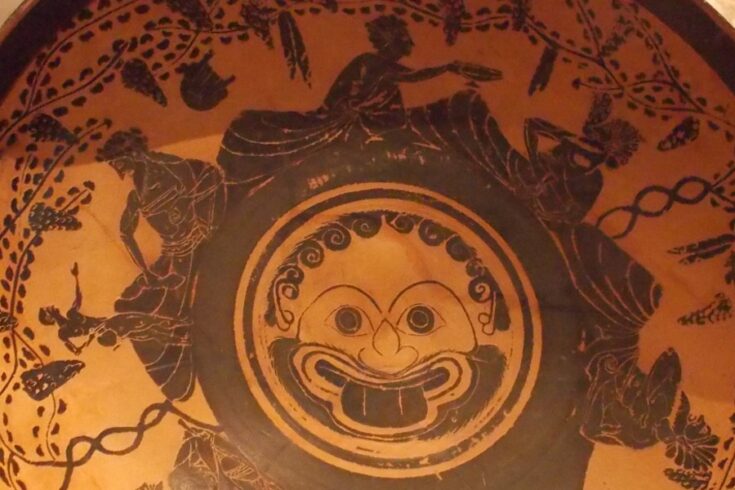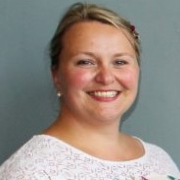Public enthusiasm for classics and ancient history is currently high thanks to a number of high-profile classicists on TV and radio such as Mary Beard, Edith Hall, Natalie Haynes, Tom Holland and Bettany Hughes.
Meanwhile, books such as Madeline Miller’s ‘Circe and Song of Achilles’, Pat Barker’s ‘Silence of the Girls’ and Stephen Fry’s ‘Mythos’ and ‘Troy’ have won critics’ and readers’ awards, and set social media ablaze with praise.
The British Council’s Language Trends Survey 2023 identified that Latin is now the fourth most-taught language in primary schools in England, ahead of Mandarin, Arabic, Russian and Italian.
Studying classical subjects
It hopefully comes as no surprise, then, that there is renewed interest in the study of classical subjects in state-maintained primary and secondary schools.
Feedback from both teachers and learners is usually very positive, with gladiators, Greek myths and gods or goddesses being mentioned as particular highlights.
But what skills do students gain from studying classical subjects?
Studying ancient Greek and Roman civilisation, history, thought, literature, art and archaeology is not only exciting and instructive, but confers profound advantages.
It:
- hones analytical and critical skills
- trains minds in the comparative use of different types of evidence
- introduces young people to vital skills in argumentation and communication
- enhances cultural literacy
- refines consciousness of cultural difference and relativism
It also fosters awareness of a three-millennia long past, along with models and ideals of democracy, and develops identities founded in citizenship on the national, European and cosmopolitan, global levels.
Advocating Classics Education project
Motivated by the belief that too few British teenagers have the opportunity to learn about the ancient Greeks and Romans at secondary level, Professor Edith Hall and myself established the Advocating Classics Education (ACE) project.
The project was set up with funding from the Arts and Humanities Research Council (AHRC) in 2017.
We support schools to introduce classical civilisation and ancient history teaching into the secondary curriculum (Hall & Holmes-Henderson, 2017).
With follow-on funding awarded in 2020, the project widened its reach further, to work directly with OCR exam board, museum partners (in Liverpool and Cambridge) and teachers. It created digital sourcebooks, museum workshops and subject knowledge enhancement training for non-specialist teachers.
The results have been spectacular.
Widening access to classics
Since 2017, we have worked with 15 university partners in all four nations of the UK and Ireland.
The map on the ACE website (under ‘Our impact’) shows the geographical impact of our collective efforts. Red dropped pins indicate the location of schools which have introduced, or expanded, classical civilisation or ancient history, or both, via engagement with us.
Together with our partner universities, and supported by national charities such as the Classical Association, the Hellenic Society, the Roman Society and Classics for All, we ran several public events, teacher training days and online information workshops.
We explained that it is possible to facilitate progression in classics, across the primary to secondary transition and that GCSE and A Level qualifications exist in classical civilisation and ancient history.
These qualifications allow students to learn about the ancient world without studying Latin or Greek; the ancient source material which students read has been translated into English.
We found that teachers of history were curious about ancient history (both ‘count’ on the English baccalaureate performance measure).
We also found that teachers of English, religious studies, modern languages and citizenship were keen to know more about classical civilisation.
Turning the tide
A decade ago, classical subjects were the preserve of the intellectual or financial elite, available almost exclusively in selective state schools or in independent schools. For classical civilisation and ancient history, this is no longer the case.
Entries for A Level classical civilisation in 2023 have risen by 36% since 2022. GCSE entries are also up by 27% and are at the highest number in the last twenty years.
Ancient history is the most ‘democratic’ of classical subjects, available in more non-selective state-maintained schools than Latin, Greek or classical civilisation.
Entries for A Level ancient history are at the highest level since the qualification launched and have seen a 22% increase in the 12 months 2022 to 2023.
The GCSE is also breaking records…2023 saw the highest number of students being presented in the qualification’s history and a 15% increase in entries in 2023, compared to 2022.
Collaborative approach
Our collaborative approach to subject advocacy has borne fruit and I am delighted that more young people now have the opportunity to learn about classical subjects in educational, community and museum contexts.
My work, however, is far from done.
I am a member of the expert panel of the Department for Education’s Latin Excellence Programme (2022 to 2025 and 2026). The programme is a £4 million investment to widen access to the study of Latin and Classics in state-maintained secondary schools at Key Stage 3 and Key Stage 4.
There is more to do to equalise opportunity of access to classics in the primary sector and to promote Greek at all levels.
To realise these aims, I appeal to colleagues across the arts, humanities, education and public policy to get in touch with suggestions of ways we might work together.
If you think classics is cool (or is on the way to becoming cool) please share this blog via social media tagging @drarlenehh @classcivanchist @durham_classics @ahrcpress




